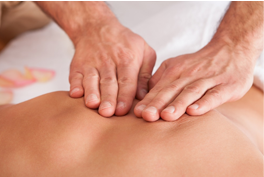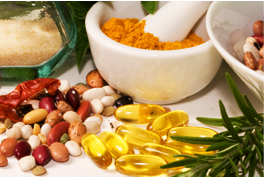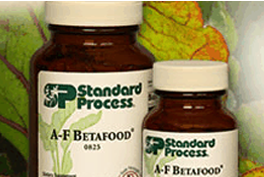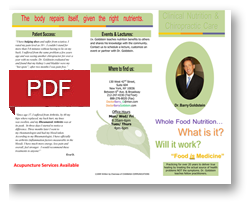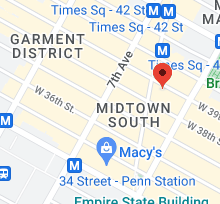Dr. Barry Goldstein is not just a New York chiropractor, he is a qualified nutritionist. Rather than just treat the symptoms of pain, Dr. Barry believes we should treat the causes and practice preventative medicine. Believe it or not, you can shop for food for spine health.
This leads us to the question, What are the best foods for back pain? We have created a list to get you started. We believe it is important to contact a nutritionist or physician if these grocery items conflict with any other dietary requirements you may have. Call Dr. Barry to discuss food for spine health and make an appointment.
The Spinal Health Grocery List – The Best Food For Back Pain
- Flax seed
- Green tea
- Brightly colored fruits
- Nuts (walnuts, almonds, pecans)
- Dairy (milk, cheese, butter, yogurt)
- Olive oil
- Vitamins (A, B12, C, D, K, Calcium)
- Salmon
- Mackerel
- Tuna
The No-Go List – Worst Food For Back Pain
- Red meats
- Potatoes
- Processed, fast foods
- Foods high in preservatives (crackers, chips)
Even if you think it may be too late to practice preventative medicine for your back pain, change your diet to avoid other pains or the worsening of a current pain you have.
This is a short list of food for spine health. We would like to reiterate that it is important to discuss these options with your doctor or nutritionist. Dr. Barry believes that health must be gained and maintained from more than one perspective. Start watching your diet, get the right form of exercise, and change your mindset.
Here is to a happier and healthier year for you all!



